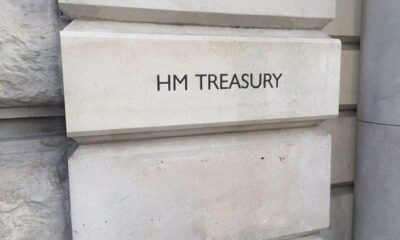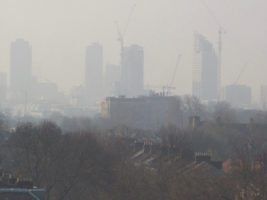

Energy
Green Remit of Green Investment Bank Must Be Protected If Sold
Parliament’s green watchdog – the Environmental Audit Committee – has warned the Government that its proposed privatisation of the Green Investment Bank (GIB) must not go ahead unless Ministers can ensure that the Bank’s guiding green objectives are protected and strengthened.
Environmental Audit Committee Chair, Huw Irranca-Davies MP, said: “The Green Investment Bank has done a great job of getting capital flowing to the kind of innovative green projects that sometimes struggle to secure financial backing. The decision to privatise the Bank appears rushed and Ministers have not produced convincing evidence that it will achieve its aims better in the private sector.
“The Government is currently relying on assurances from potential shareholders and the commercial case for retaining the Green Investment Bank’s green purposes. That is not robust enough.
“The Government must ensure the Green Investment Bank continues to do what it says on the tin. If the Government cannot guarantee that the Green Investment Bank will retain its green purpose in the private sector then the sale should not go ahead.”
Lack of evidence and consultation
The Committee criticises the Government for taking the decision to privatise GIB without due transparency, publication of relevant evidence, consultation, or proper consideration of alternatives. It says that the Government has not put robust enough safeguards in place to protect GIB’s green purposes, and calls on the Government to establish a special share to protect GIB’s green purposes.
Risk to GIB’s green identity
The report identifies two key risks that could result from the privatisation that cannot be avoided merely by protecting its green purposes.
First, that the GIB will move its focus away from novel and complex projects that struggle to find funding in favour of easier, more commercial projects.
Second, that a privatised GIB could invest in areas which may damage its reputation and undermine its leadership role in the green economy.
Environmental Audit Committee Chair, Huw Irranca-Davies MP, added: “Markets sometimes fail to value the actions needed to protect our air, climate and biodiversity. Whilst we recognise there are potential benefits from an injection of capital, we are worried that a privatised Green Investment Bank would shy away from precisely the kind of difficult projects it was founded to fund.
“We need a Green Investment Bank that has the freedom to operate in ways that conventional commercial banks cannot. The green purposes of GIB must not only be properly protected – they should be strengthened. The Government should retain a minority stake in the Bank to ensure its long- term strength and demonstrate the UK’s commitment to the green economy following the Paris climate agreement.”
The sale and the Government’s future involvement
Before proceeding with the sale of the GIB, the Environmental Audit Committee says the Government must publish a business case and all impact assessments related to the sale. The Government should provide an evaluation of whether a ‘phased approach’ involving alternative recapitalisation options would be possible. This could allow for greater consultation, transparency and market testing on the form of any eventual privatisation.
The report concludes that, if the Government goes ahead with privatisation, the Bank should be sold as a going concern. In addition, the Government should retain a minority stake in the Bank in order to demonstrate its commitment to the green economy and ensure the Bank’s long-term strength.
If the GIB is not privatised, then it should be granted borrowing powers.


 Environment12 months ago
Environment12 months agoAre Polymer Banknotes: an Eco-Friendly Trend or a Groundswell?

 Features11 months ago
Features11 months agoEco-Friendly Cryptocurrencies: Sustainable Investment Choices

 Features12 months ago
Features12 months agoEco-Friendly Crypto Traders Must Find the Right Exchange

 Energy11 months ago
Energy11 months agoThe Growing Role of Solar Panels in Ireland’s Energy Future




























